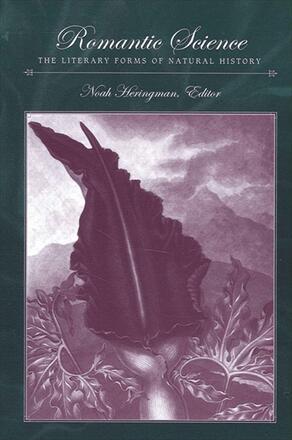
Romantic Science
The Literary Forms of Natural History
Alternative formats available from:
Uncovers the vital role that new scientific discoveries played in Romantic literary culture.
Description
Although "romantic science" may sound like a paradox, much of the romance surrounding modern science—the mad scientist, the intuitive genius, the utopian transformation of nature—originated in the Romantic period. Romantic Science traces the literary and cultural politics surrounding the formation of the modern scientific disciplines emerging from eighteenth-century natural history. Revealing how scientific concerns were literary concerns in the Romantic period, the contributors uncover the vital role that new discoveries in earth, plant, and animal sciences played in the period's literary culture. As Thomas Pennant put it in 1772, "Natural History is, at present, the favourite science over all Europe, and the progress which has been made in it will distinguish and characterise the eighteenth century in the annals of literature. " As they examine the social and literary ramifications of a particular branch or object of natural history, the contributors to this volume historicize our present intellectual landscape by reimagining and redrawing the disciplinary boundaries between literature and science.
Contributors include Alan Bewell, Rachel Crawford, Noah Heringman, Theresa M. Kelley, Amy Mae King, Lydia H. Liu, Anne K. Mellor, Stuart Peterfreund, and Catherine E. Ross.
Noah Heringman is Assistant Professor of English at the University of Missouri at Columbia.
Reviews
"This book displays interpretive brilliance. A stunning array of methods are applied to an extraordinarily wide range of eighteenth- and nineteenth-century texts, involving new readings of canonical works. It dramatically clarifies the relationships between major figures of the period, and brings to light texts, contexts, and controversies that have not been confronted in such detail in previous scholarly studies. " — Donald Ault, author of Narrative Unbound: Re-Visioning William Blake's The Four Zoas